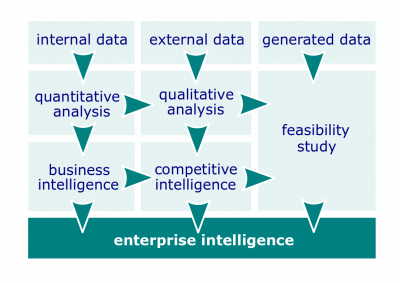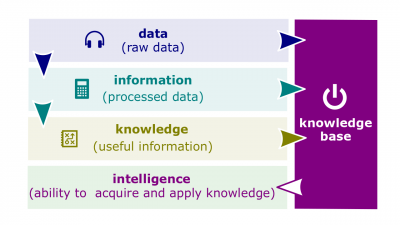Difference between revisions of "Enterprise intelligence"
(→Related coursework) |
|||
| Line 9: | Line 9: | ||
*[[Countersurveillance]]. [[Enterprise effort]]s such as [[covert surveillance]] undertaken to prevent [[surveillance]]. | *[[Countersurveillance]]. [[Enterprise effort]]s such as [[covert surveillance]] undertaken to prevent [[surveillance]]. | ||
| − | ==Related | + | ==Related lectures== |
*[[Enterprise Intelligence Quarter]]. | *[[Enterprise Intelligence Quarter]]. | ||
[[Category: Septem Artes Administrativi]][[Category: Articles]] | [[Category: Septem Artes Administrativi]][[Category: Articles]] | ||
Latest revision as of 19:47, 4 January 2019
Enterprise intelligence (hereinafter, Intel) is intelligence that is accountable for taking data from all data sources and processing it into useful knowledge in order to identify risks, both business threats and business opportunities and to provide enterprises with actionable insights based on human analysis and data analytics.
The Intel is accountable for dealing with insider threat, cyber crime, physical crime, and other threats on the one side, as well as business leads and potentials on the other side.
Related concepts
- Intelligence. (1) The ability to acquire and apply knowledge and skills; (2) The collection of information of military, political, or business value.
- Natural language processing (NLP). The ability of computers to understand, or process natural human languages and derive meaning from them. NLP typically involves machine interpretation of text or speech recognition.
- Planning. A branch of AI dealing with planned sequences or strategies to be performed by an AI-powered machine. Things such as actions to take, variable to account for, and duration of performance are accounted for.
- Countersurveillance. Enterprise efforts such as covert surveillance undertaken to prevent surveillance.

